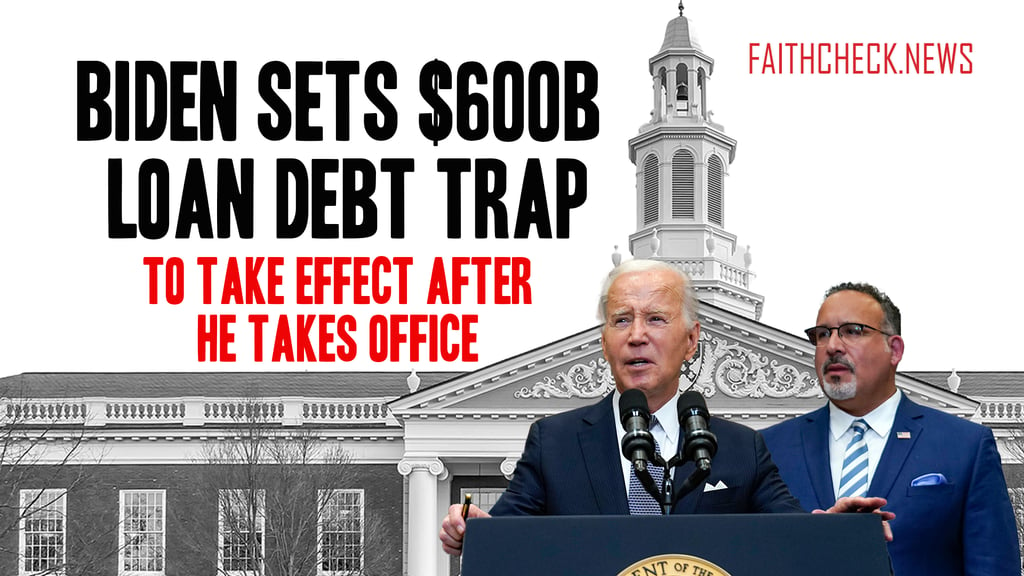Biden Refuses to Leave Office...Sets $600B Student Loan Trap
Biden proposes student loan forgiveness plan to take effect after he leaves office.
NEWS
12/6/20242 min read


And they said Trump would refuse to leave office. Instead, President Biden is proposing a student loan forgiveness plan that is set to take effect following the inauguration of President-elect Donald Trump in January. In case you forgot, multiple federal judges have struck down Biden's attempt to buy college-aged voters with debt relief as "unconstitutional." Indeed, one judge quoted James Madison to suggest Biden was inviting "tyranny."
“In this country, we are not ruled by an all-powerful executive with a pen and a phone. Instead, we are ruled by a Constitution that provides for three distinct and independent branches of government,” U.S. District Judge Mark Pittman, who was appointed by Donald Trump, wrote in a 26-page order. “As President James Madison warned, ‘[t]he accumulation of all powers, legislative, executive, and judiciary, in the same hands, whether of one, a few, or many, and whether hereditary, self-appointed, or elective, may justly be pronounced the very definition of tyranny.'”
The Department of Education has estimated the plan’s cost at $112 billion, but one analyst has argued this figure significantly underestimates the true cost, suggesting it could be as much as five times higher.
An economist and public policy expert expressed concern about the proposal, describing it as “worrisome” in an interview with The College Fix.
The department began accepting public comments on the proposal on October 31, just days before the election. The comment period, which ended on Monday, December 2, indicates the proposal has been under development since at least February.
Under the proposal, the Education Secretary would have the authority to waive all or part of student loan debts for borrowers who have experienced or are currently experiencing hardship. Hardship is defined broadly, including circumstances that are likely to affect the borrower’s ability to fully repay their federal loans or situations where the costs of enforcing repayment exceed the benefits of collection.
While the Department of Education maintains that the proposal would cost $112 billion, analysts from the Committee for a Responsible Federal Budget have suggested the total cost could climb to $600 billion over the next decade, according to The Fix.

Faith Check News
Curating daily news stories for Christian readers.
CONNECT OTHERS
© 2025. All rights reserved.
